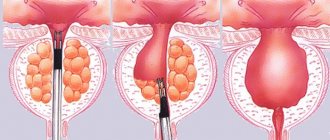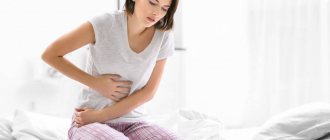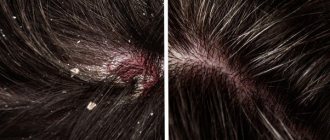In adult representatives of the fair sex, the urge to urinate occurs from 4 to 8 times per day. This is the average figure for a volume of liquid drunk up to 1600 ml. These indicators are influenced by the temperature in the room, as well as the amount of coffee, green tea and herbal infusions consumed. An adult should urinate no more than once at night. If these indicators become higher, then we can talk about a deviation from the norm. Frequent urination in women without pain occurs for a number of reasons that are important to understand.
When should urination be considered frequent?
The norm is the excretion of 1.5-2 liters of urine per day, while the frequency of visiting the toilet ranges from 3 to 7 times a day. In children, the urge to empty the bladder appears more often. Normal indicators per day are:
newborns: 12-16 times;
children aged 1-3 years: 10 times;
girls and boys aged 3-9 years: 6-8 times.
There are a number of factors that can affect how often you urinate. The urge will increase if a person drinks a lot of liquid or consumes diuretic products (for example, watermelon, melon, cucumber).
The concept of frequent urination varies between women and men. Some people visit the toilet 7 times a day, while for others 3 times is enough. If a person has not made adjustments to his diet, consumed fluids evenly, and the urge has increased, then we can assume that urination is frequent, especially if it brings discomfort, pain, or burning. Typically, it is considered a violation if a person visits the restroom more than 10 times a day. Often in this case the amount of urine excreted is insignificant. Normally, 200-300 ml of urine should be released at a time.
In medicine, frequent trips to the toilet are called:
- Pollakiuria. This is a daytime urinary disorder.
- Nocturia. This is the name given to impaired urinary excretion at night. A healthy person should visit the toilet no more than once at night.
Frequent urination in women: principles of drug treatment
After the tests are over and the diagnosis has been established, the woman is prescribed therapy designed to correct her problem with maximum effectiveness.
In most cases, doctors try to make do with pills and suppositories without resorting to invasive intervention methods.
Medicines that can be used include:
- uroantiseptics that can kill pathogenic microorganisms in urine (for example, Urolesan, Uronephron, etc.)
- prebiotics and probiotics designed to restore the microflora of the intestines, vagina and other parts of the body, which often suffers due to the therapy chosen by the doctor
- drugs from the group of antispasmodics, which act as symptomatic therapy and are used to relieve pain, which often reduces the quality of life of patients (No-shpa, Drotaverine, etc. are prescribed)
- Insulin therapy is the method of choice if the patient has confirmed diabetes mellitus
Herbs for frequent urination in women can also be used for therapy.
But only under close medical supervision and with the doctor’s approval.
Since the symptom is quite formidable, self-medication can only do harm, and not alleviate your condition.
Causes and symptoms of frequent urination
There are physiological and pathological frequent urination. In the first case, the symptom goes away on its own, no therapy is required. In case of a pathological process, especially if there is frequent urination with pain, treatment is required.
There are such physiological conditions that affect the frequency of visiting the toilet:
- Increase fluid intake.
- Pregnancy. An enlarged uterus simply puts pressure on the bladder, causing a frequent urge to urinate.
- Hormonal changes that occur during menstruation or menopause.
- High blood pressure, stressful situation, hypothermia.
Pathological causes of frequent urination in both sexes:
- Pyelonephritis. This is an inflammatory process in the kidney area. In this case, the temperature rises, the urine becomes cloudy, there is a tightening in the lower back, and there is pain when emptying the bladder.
- Urethritis. This is the name of the inflammatory process in the urethra. Even after visiting the toilet, the bladder does not seem to be completely emptied. Urination is accompanied by a burning sensation. Similar symptoms are caused by cystitis (inflammation of the bladder).
- Urolithiasis disease. This is the name given to the formation of stones in the organs of the urinary system. This condition is accompanied by painful sensations; pus or blood impurities can be seen in the urine.
- Diabetes. Most often, there is frequent urination without pain at night.
Causes and symptoms in men
Frequent urination in men can provoke the following pathologies:
Prostatitis is inflammation of the prostate gland. A man feels pain during urination, ejaculation, and a burning sensation. Unpleasant sensations appear in the area between the scrotum and anus. In some cases, patients complain of pain in the lumbar region.
Prostate adenoma is a benign neoplasm. In addition to the main symptom, there is a weak urine flow, discomfort during emptying of the bladder, which still seems full after urination. In the future, the opposite condition may appear - urinary retention. The same symptoms are caused by prostate cancer.
Bladder neck sclerosis is a complication after cystitis that appears if there is no treatment. At first, urination becomes more frequent, but after a while, urinary retention occurs.
Causes and symptoms in women
Frequent urges in women can provoke the following pathologies:
endometriosis – growth of the uterine lining that spreads to the bladder;
uterine fibroids – an increase in the size of the uterus puts pressure on the bladder;
inflammatory process, the appearance of neoplasms in the genital organs.
Diagnostics
Diagnostic measures are carried out by a urologist. According to indications, an andrologist, gynecologist, endocrinologist and other specialists are involved in the examination. If mental disorders are suspected, patients are referred for consultation to a psychotherapist or psychiatrist. During the conversation, the specialist determines the time of occurrence and severity of frequent urination, the presence of other manifestations indicating the nature of the disease. Patients are asked to fill out a special diary.
During the general examination, the doctor identifies areas of pain, conducts special tests (for example, checking Pasternatsky’s symptom), assesses the general condition of the body, nutritional level, etc. Women are advised to examine them in a chair; men with suspected andrological pathology are advised to undergo a digital examination of the prostate. For neurogenic disorders, a neurological examination is performed. The additional examination plan includes procedures such as:
- Ultrasonography.
When performing an ultrasound of the bladder, corresponding changes in the wall of the organ are detected. Ultrasound of the prostate allows you to confirm the presence of inflammation and space-occupying formations. According to pelvic ultrasound data, women get a comprehensive picture of the state of the reproductive system. Ultrasound of the kidneys reveals stones, structural abnormalities, and inflammatory processes. - Radiation techniques.
For kidney diseases, survey or excretory urography is indicated. In cases of renal dysfunction, contrast studies are performed with caution. The images reveal enlargement or deformation of the kidney, stones, and tumors. One of the most revealing methods of examination for urolithiasis is a CT scan of the kidneys. For diverticula, retrograde urography is performed. - Endoscopic methods.
Cystoscopy allows you to determine the nature of inflammation in cystitis, confirm sclerosis of the cervix, wrinkling or the presence of ureterocele, and exclude tumor processes. During urethroscopy, diverticula are detected. Patients with gynecological diseases sometimes require hysterosalpingoscopy. During endoscopic examinations, a biopsy sample can be taken. - Lab tests.
Urine tests can reveal leukocyturia, bacteriuria, and proteinuria. To determine the nature of the microflora, microscopy of smears and discharge and inoculation on nutrient media are performed. STIs are confirmed by ELISA, PCR. For prostate diseases, PSA levels are assessed. In diabetes mellitus, glucose, insulin and C-peptide levels are examined. For diabetes insipidus, an ADH test is done.
Treatment
How to treat frequent urination? Before starting treatment, you will need to find out the cause of this symptom. If it was provoked by physiological factors, then there is no need to worry. The trouble will go away on its own. Pregnant women need to be careful. It is recommended to visit a doctor if a burning sensation is present.
If you suspect the development of pathology, you need to visit a doctor. Initially, you should go to a general practitioner, who will most likely refer you to a urologist. To understand how to treat frequent urination in men and women, you will need to make an accurate diagnosis. To do this, the patient undergoes a series of studies.
To get rid of an unpleasant symptom, the underlying pathology is treated. Doctors also often prescribe antispasmodics, antibacterial drugs, especially if there is an infection, and drugs to eliminate inflammation. You should not self-medicate; medications should be prescribed by a doctor.
STDs: a common factor in frequent urination
Often, complaints of a weak stream and frequent urination in women indicate the development of one of the infections that is spread sexually.
For example, it could be mycoplasmosis, trichomoniasis, chlamydia, ureaplasmosis or another pathology from this group.
Representatives of the fair sex often do not understand how STDs and the urinary system are related to each other.
In practice everything is very simple.
The close proximity of these organs plays a cruel joke, leading to the appearance of unpleasant symptoms in one system when the other is affected.
The answer to the question of which STDs cause unpleasant symptoms is quite obvious.
Primarily these are bacterial infections.
However, with viral pathologies, the formation of complaints is also quite possible.
Moreover, if the kidneys hurt with frequent urination in women against the background of an existing STD, this is a reason to think that the infectious process has penetrated deep into the body.
And he began to destroy not only the genitals, but also other systems.
Prevention
In order not to think in the future what to do if you urinate frequently, it is recommended to take preventive measures. To do this you need:
- adhere to the correct water regime, eat healthy food;
- do not abuse alcohol;
- give up nicotine;
- periodically undergo preventive examinations with doctors, promptly treat identified pathologies;
- monitor the culture of intimate life.
Doctors often encounter patients who come with the complaint: “I often go to urinate.” But many people delay visiting the doctor, aggravating the process. Timely identification of the cause and proper treatment can get rid of this unpleasant symptom, returning you to your previous life.
If, according to a doctor's opinion, a man is diagnosed with prostatitis, then treatment of the prostate gland will be required.
Make an appointment
Diagnostic measures for frequent urination
When it becomes clear where to go with the emerging alarming symptoms, a new question arises that worries many patients.
How the diagnosis is carried out and the causes of the emerging deviation are identified - that’s what worries patients.
First of all, it is recommended that a representative of the fair sex undergo a urine test, as well as a gynecological smear.
These two studies allow us to exclude a fairly wide range of diseases.
For example, after assessing the composition of urine, a doctor may reject the diagnosis of diabetes mellitus if there is no glucose in the urine.
Smear examination is of great diagnostic importance.
Urine testing for STDs may not be as effective in this regard, since urine itself is not sterile.
It is possible to obtain more diagnostically significant data from a smear if it is examined correctly.
To make a diagnosis, the doctor may use microscopy, culture, PCR and other techniques.
We must not forget about the possibility of using instrumental techniques.
Ultrasound, for example, is of great importance.
With its help, you can evaluate not only the genitals, but also the system for removing urine from the body.
Medicines
Drug treatment involves a wide range of medications, and its specificity is determined by the type of disease that caused pollakiuria:
- uroantiseptics and antibacterial agents (prescribed for inflammatory processes of the urinary organs);
- insulin (for the treatment of diabetes);
- antispasmodics (relieve pain);
- probiotics (help maintain normal microflora of the body);
- nootropic drugs (prescribed for bladder disorders);
- sedatives (indicated for mental and neurological disorders).
Self-medication is unacceptable - a doctor should prescribe medications and monitor the progress of recovery!
Symptoms
Nocturia itself is part of a symptom complex of many diseases. The main sign of the presence of pathology is that the patient urinates mainly at night rather than during the day (the predominance of nighttime diuresis over daytime).
In this case, the patient experiences:
- increased irritability;
- fatigue and low performance during the day;
- insomnia, the cause of which is the frequent need to go to the toilet at night;
- depression;
- anxious and sensitive sleep;
- memory problems;
- labile emotional state.
Frequent urination in pregnant women
During gestation, amniotic fluid is constantly renewed, and this is reflected in a woman’s urination.
Pregnancy causes the uterus to grow. Increasing in size, this organ puts pressure on the bladder, stimulating urination. Therefore, pregnant women most often feel the desire to urinate in the last stages, when the fetus, and with it the uterus, has reached its largest size.
If frequent urination during pregnancy is accompanied by pain or discharge with blood and pus, this is an alarming signal that requires urgent attention to a specialist.
Consequences of going to the toilet at night
Night urination in itself significantly impairs quality of life. Constant interruption of sleep causes fatigue and irritation, and reduces performance.
In addition, if left untreated, complications occur and the disease worsens. For example, prostate adenoma can degenerate into a cancerous tumor. And prostatitis can lead to male infertility.
Self-medication in this case is completely excluded. It can only aggravate the situation and negatively affect the functioning of internal organs. Therefore, if you have regular urges at night, you should be examined by a urologist-andrologist and undergo the necessary tests.
Gynecological diseases
Gynecological disorders also cause increased urge. Among them are uterine
fibroids in an advanced stage. Tumor uterine formations, having reached significant parameters, compress the bladder, which causes an increased urge to urinate.
Pollakiuria may appear as a result of uterine prolapse, leading to displacement of a number of organs in the pelvic region, in particular the urinary ones. Symptoms of this pathology are heavy menstrual bleeding, pain in the lower abdomen, and constant frequent urination.
A number of sexually transmitted infectious diseases can also lead to disruption.
Endocrine
Frequent urination of an endocrine nature is a concomitant sign of diseases such as diabetes mellitus or diabetes insipidus.
In the case of diabetes mellitus, a lack of insulin causes an increase in sugar levels in the blood and urine. Glucose has the property of transporting water molecules. When released, glucose dehydrates the body, leading to frequent, excessive urination.
Failure of the hypothalamus and pituitary gland, as one of the manifestations of diabetes insipidus, causes a feeling of intense thirst, so urination becomes more frequent.
How does this happen
Repeated episodes of apnea are oxygen starvation of organs, vasospasm as a result of the release of the stress hormone adrenaline, and an increase in the load on the heart due to large fluctuations in pressure inside the chest. All together, this leads to a significant overload of the cardiovascular system of such a patient during sleep. The patient’s body and its regulatory systems begin to look for at least some way out of the current situation. And the only way to reduce the load on the heart is to reduce the volume of fluid that it pumps. As a result, in order to reduce the volume of blood circulating in the vessels, increased urine production begins and subsequent regular night walks to the toilet.
Non-pathological disorders
An increase in the frequency of urine excretion may also have a non-pathological nature.
The most common non-pathological causes of frequent trips to the toilet:
- excessive fluid intake, in particular drinks with a high caffeine content, leading to bladder irritation (coffee, tea);
- overweight (obesity) – extra pounds put additional pressure on the bladder, causing a problem;
- weak muscular corset of the pelvic floor - in the presence of weakened muscles, the need for emptying occurs more often;
- pregnancy – the fetus, as it grows, puts pressure on the bladder;
- psychological stress, emotional experiences, feelings of anxiety, fear;
- the use of diuretic therapy - medications lead to an increase in the frequency of urination and an increase in the single volume of urine.
It is important to promptly determine why frequent urination occurs and what disease it is a symptom of. To do this, you must undergo the necessary diagnostics.
Features of diet and nutrition
The necessary dietary nutrition will help get rid of the phenomenon of pollakiuria.
The patient is advised to limit fluid intake, eliminate caffeine-containing and carbonated drinks, as well as alcoholic beverages.
You should also not eat spicy foods, pickles and fried foods, which lead to thirst.
You cannot eat tomatoes and pineapples, fatty cheeses, or drink citrus juices. Their consumption negatively affects the health of the urinary system.
Meals should be regular and preferably divided, and food should be taken in small portions.
Complications and consequences
Diseases that lead to frequent urination can be cured, and they will not affect your future life.
However, chronic diseases with frequent exacerbations can cause a decrease in quality of life, cause depression, anxiety, and sleep disturbances. Untreated infections and complete ignoring of symptoms, as well as self-medication, lead to inflammation spreading to the kidneys, which increases the risk of developing kidney failure. This becomes a common cause of organ dysfunction, since chronic renal failure is a serious complication that significantly shortens life expectancy.
With proper and timely therapy, the prognosis for the treatment of bedwetting is favorable.
Types of nocturia
Urologists classify nocturia based on the cause of its occurrence.
Experts also identify the type of development: primary (due to pathologies of the genitourinary system) and secondary (due to problems with other internal systems).
In addition, urologists distinguish types of problems according to duration and course: temporary or permanent. Permanent is further subdivided into uncomplicated and complicated by other diseases.











